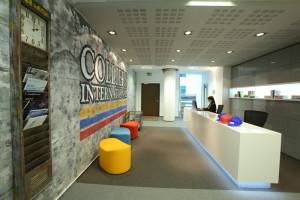May 28, 2013
Three quarters of London investment banks set to trim corporate real estate
 According to a new report from CBRE, nearly three quarters (72 percent) of investment banks based in London are looking to cut their corporate real estate portfolios over the next two years as they adjust to a changing global market for their services as well as structural changes in the UK’s regulatory framework. As well as trimming London based properties, the report says that banks will continue to relocate functions to the UK regions in an effort to reduce costs. Since the low point of 2009, rents in the City of London have increased from £42.50 per sq ft to about £55 per sq ft. The survey also found that just over a third (34 percent) of banks expect to see cuts as a result of mergers and acquisitions in the sector.
According to a new report from CBRE, nearly three quarters (72 percent) of investment banks based in London are looking to cut their corporate real estate portfolios over the next two years as they adjust to a changing global market for their services as well as structural changes in the UK’s regulatory framework. As well as trimming London based properties, the report says that banks will continue to relocate functions to the UK regions in an effort to reduce costs. Since the low point of 2009, rents in the City of London have increased from £42.50 per sq ft to about £55 per sq ft. The survey also found that just over a third (34 percent) of banks expect to see cuts as a result of mergers and acquisitions in the sector.






















May 30, 2013
UK public sector leading the way in procurement and sustainable building
by Paul Statham • Comment, Facilities management, Public Sector, Technology
Nottingham City Council’s Loxley Building
Over the last few years, the UK Government has grown increasingly interested in finding ways of making its £30 billion property portfolio more efficient. Both the last Labour government and the current Coalition administration have been driven by the opportunities offered them with the advent of new technology, new ways of working and new procurement models. They’ve pursued these issues to cut costs by reducing and changing the way property is designed and managed but have also found how that can also help to establish best practice in sustainable building. What is increasingly apparent, especially given recent news from the Major Projects Authority about cost savings in procurement is that the public sector is now leading the way as models of good practice.
(more…)